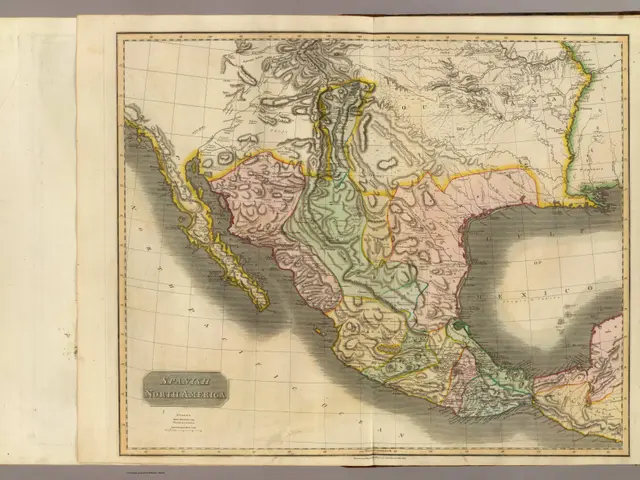Media discovers the consequences of granting wishes, using the controversy surrounding Jimmy Kimmel as an example
In a series of unexpected events, two major television networks, ABC and CBS, have found themselves at the centre of a political storm, following settlements with President Donald Trump. The CBS settlement, made last year, was met with widespread speculation that it was a concession by the network's parent company, Paramount, which was attempting to secure a merger with Skydance Media at the time. ABC followed suit with a similar settlement, parting ways with Jimmy Kimmel's late-night show and contributing $15 million to Trump's presidential library, along with $1 million in legal fees to his attorney.
The Trump administration and other Republicans have maintained that these decisions were driven by poor viewership, rather than a punishment for dissent. However, journalist Jeff Jarvis and other commentators have argued that these cancellations were political moves, not business ones. Damon Lindelof, the writer and producer of hit shows including ABC's "Lost," has even gone so far as to state that he will not work with Disney unless Kimmel is reinstated.
The case centred on an imprecise wording by George Stephanopoulos around the 2023 verdict that found Trump liable for sexually abusing E. Jean Carroll in the 1990s. Both settlements amounted to $16 million, with CBS paying a similar sum five months before the original ABC settlement.
The person who played a decisive role at the Federal Communications Commission (FCC) against President Trump and his views regarding Jimmy Kimmel's show is Brendan Carr, the FCC Chair. Trump has suggested that broadcast licenses should be revoked if networks air overwhelmingly negative perspectives on him, but they are currently allowed to do so. However, the FCC chair, appointed by Trump, has shown a history of punishing officials who do not do what he wants.
Across social media, outraged viewers are calling for a boycott of Disney and its properties, including Hulu. This boycott has had an impact, with Target's sales and stock struggling, and its CEO stepping down amid the boycott and other business headaches. Keith Edwards, a left-leaning commentator, wrote on Threads that a boycott of Disney should be similar to the one against Target.
Democratic Senator Chris Van Hollen stated that caving in to a bully, as ABC did, gives the bully a bigger appetite and puts everyone at risk. He urged networks to stand firm in the face of political pressure. Trump has also suggested that Jimmy Fallon and Seth Meyers should also be on NBC's chopping block, as their ratings are also poor.
In a surprising turn of events, ABC conceded the fight nine months after the settlement and pulled the plug on Jimmy Kimmel's late-night show indefinitely hours after the head of the Federal Communications Commission made vague threats. While late-night TV viewership has been declining, Kimmel and Colbert have ranked among the highest-rated shows among the key demographic of viewers ages 25 to 54, and are popular on YouTube and TikTok.
As the dust settles, the impact of these events on the television industry and the broader political landscape remains to be seen. One thing is clear: the line between business and politics has become increasingly blurred, and the consequences of this blurring are far-reaching and complex.
Read also:
- United States tariffs pose a threat to India, necessitating the recruitment of adept negotiators or strategists, similar to those who had influenced Trump's decisions.
- Weekly happenings in the German Federal Parliament (Bundestag)
- Southwest region's most popular posts, accompanied by an inquiry:
- Discussion between Putin and Trump in Alaska could potentially overshadow Ukraine's concerns








